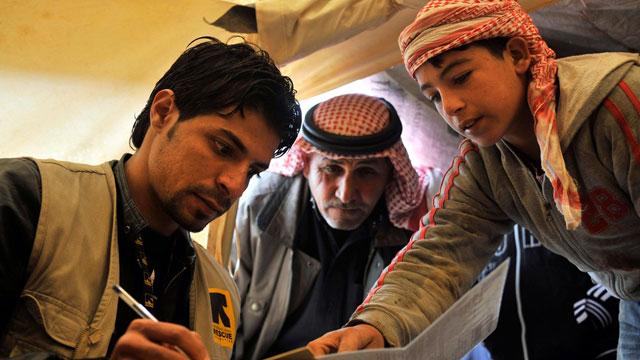You are here
Local innovation lab to develop solutions to refugee crises
By Camille Dupire - Oct 18,2017 - Last updated at Oct 18,2017
AMMAN — The Mahali Lab has been recently inaugurated in Jordan, aiming to offer an innovative platform for identifying and solving challenges caused by long-term displacement of people due to regional crises.
Established by the global networks of NGOs Start Network and CDAC Network, the innovative lab is managed by the Airbel Centre, the innovation unit at the International Rescue Committee (IRC).
Through the facility, local community members will propose practical solutions to daily problems they encounter as a result of forced displacement, which will be submitted through a “design challenge” format.
The theme of each challenge will be determined after consulting with Syrian refugees, leaders in host communities, and community-based organisations, according to a Start Network statement.
“The most exciting thing about this initiative is seeing people from the community come together and realise that they have the power to be active problem solvers and that we’re able to support them. We are creating a process and a platform that reflects their needs,” said Lillie Rosen, community innovation coordinator at IRC.
Once citizens’ proposals have been received, a community review board will select the projects to be developed with the support of IRC experts.
The Mahali Lab will therefore help locals in creating innovative and personalised grassroots solutions to problems faced by vulnerable communities across Jordan
The Mahali Lab was launched along with three other platforms in Bangladesh, Kenya and the Philippines, all selected due to the countries’ vulnerability to natural and man-made disasters, the statement read.
The Airbel Centre, which will manage the entire project, aims to “jumpstart innovative thinking by designing, testing and driving large-scale adoption of innovations”, according to its website.
Commenting on the launch of the four labs, Neil Townsend, innovation programme manager, said: “This programme is truly innovative and is a chance to support locally-driven change within the humanitarian system and to channel meaningful support to the people most affected by disasters. The labs will provide the mechanism to support lots of new projects across several countries, some of which will have the potential to take to scale and lead to system-wide change.”
Related Articles
AMMAN — “Those facing the problem are the most equipped to suggest ways of solving it,” said Aya Bseiso, who works at the International Resc
AMMAN — Her Majesty Queen Rania has urged humanitarian workers to think “in bold and innovative ways” in order to instil new hope and dignit
AMMAN — Community Jameel, a Saudi-based global philanthropy organisation, and the International Rescue Committee (IRC) have announced a new

















